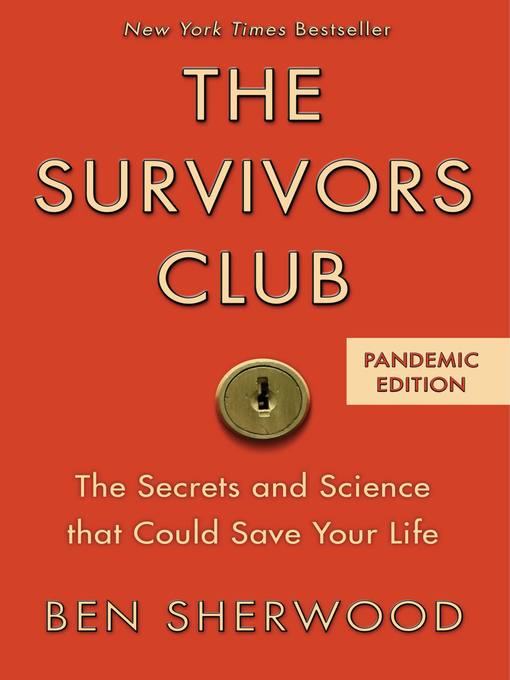
The Survivors Club
The Secrets and Science that Could Save Your Life
- اطلاعات
- نقد و بررسی
- دیدگاه کاربران
نقد و بررسی

October 27, 2008
Sherwood (The Man Who Ate the 747
), a writer for the L.A. Times
, travels worldwide to gain insight from people who have survived a slew of near fatal phenomena ranging from a mountain lion attack to a Holocaust concentration camp, and interviewing an array of experts to understand the psychology, genetics and jumble of other little things that determines whether we live or die. Readers curious about their own “survivor profile” can take an Internet test, which is explained in the book’s later pages. Sherwood’s assertion that survival is “a way of perceiving the world around you” is enlightening, as are some of the facts he uncovers: you have 90 seconds to leave a plane crash before the cabin temperature becomes unbearable; luck has more to do with personal perspective than chance. But Sherwood’s balance of self-help, scientific theories and first-rate reporting is diminished by occasionally overwrought prose as well as the countless survivors’ stories, which can run together in a touchy-feely stream of faith and optimism.

January 15, 2009
In the tradition of the "Worst-Case Scenario" franchise (e.g., Joshua Piven & David Borgenicht's "The Complete Worst-Case Scenario Survival Handbook"), journalist and best-selling novelist Sherwood ("The Death and Life of Charlie St. Cloud") attempts to explain what it is that allows some people to make it through tragedy relatively unscathed while others fail and die. Each chapter begins with an anecdote and describes specific kinds of disasterse.g., plane crashes, criminal attacks, and the Holocaustand how people survive them. Along the way, Sherwood touches on luck and faith and recent scientific research on each. If the book ended there, it would be a good read; however, Part 2 ("Are You a Survivor?") takes the reader to a web site quiz for determining "Your Survivor IQ" and then interprets these results. Because there is a unique code for each copy of the book, it will be frustrating for library users, who won't be able to take the quiz after the first patron uses the code. Purchase for large public libraries or to meet demand. [See Prepub Alert, "LJ" 9/15/08; originally titled "Who Survives".Ed.]Karl G. Siewert, Tulsa City-Cty. Lib.
Copyright 2009 Library Journal, LLC Used with permission.

December 15, 2008
According to Sherwood, two questions are central to this book. What does it really take to survive a catastrophic event and what kind of survivor are you? You might be surprised at the answers. While there are tactics and strategies to surviving life tragedies, unforeseen accidents, and other catastrophes, many of these are instinctive (some, like exhibiting transitory superhuman strength, are manifested physiologically, without conscious planning). Some of us, Sherwood explains, are better survivors than othersin prisoner-of-war camps, for example, the people most likely to collapse are the eternal optimists who believe rescue is imminent and fail to come to terms with the possibility of long-term imprisonment. The book is a useful, insightful exploration of the nature of survival, the resilience of the human mind and body, and the ways in which we can all use our natural gifts to maximize our chances of coming through catastrophic situations.(Reprinted with permission of Booklist, copyright 2008, American Library Association.)




دیدگاه کاربران